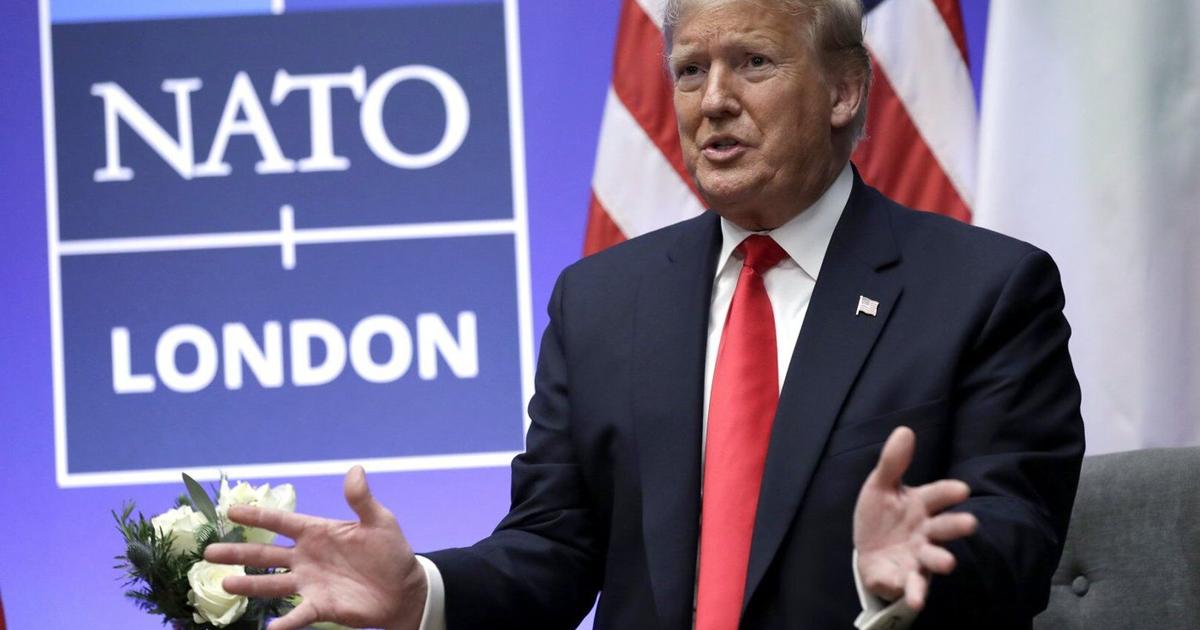Trump's NATO Summit Attendance Amidst Prospective Israel-Iran Ceasefire: A Diplomatic Balancing Act

As President Donald Trump embarks on his journey to the NATO summit, the international stage is set against the backdrop of a potential ceasefire between Israel and Iran. This convergence of events underscores the intricate web of diplomacy that defines contemporary global politics, with the United States positioned at a pivotal juncture.
The NATO summit, a gathering of the world's most powerful military alliance, presents a platform for President Trump to reaffirm the United States' commitment to collective defense and transatlantic unity. However, this summit occurs at a time when the Middle East's geopolitical landscape is potentially shifting, with reports of a possible ceasefire between Israel and Iran. Such developments could redefine regional alliances and influence the strategic priorities of NATO members.
The prospect of a ceasefire between Israel and Iran, two nations historically at odds, introduces a complex layer to the diplomatic discourse. For the United States, which has long been a staunch ally of Israel, the implications of this potential ceasefire are profound. It could signal a shift in regional dynamics, necessitating a recalibration of U.S. foreign policy in the Middle East. The Trump administration's approach to this delicate situation will be closely scrutinized, as it navigates the dual objectives of supporting its ally while fostering stability in a volatile region.
Within the corridors of the NATO summit, discussions are likely to be influenced by these developments. Member states will be keenly aware of the broader implications of a ceasefire, particularly in terms of security and defense strategies. The potential for reduced tensions in the Middle East could alter the focus of NATO's strategic priorities, prompting a reevaluation of resource allocation and military readiness.
As President Trump engages with NATO leaders, the interplay between the summit's agenda and the unfolding situation in the Middle East will be critical. The ability to effectively balance these concurrent diplomatic challenges will test the administration's strategic acumen and diplomatic finesse. In this high-stakes environment, the outcomes of the NATO summit and the potential Israel-Iran ceasefire could have lasting repercussions on global stability and U.S. foreign policy.
🔮 Fortellr Predicts
Confidence: 78%
As Donald Trump, a private citizen, navigates the situation surrounding the NATO summit amidst the prospective Israel-Iran ceasefire, several concrete outcomes are anticipated. Firstly, despite Trump's lack of official government capacity, his presence underscores ongoing U.S. engagement in NATO while paying significant attention to Middle-Eastern geopolitics, which may face challenges if Trump strongly supports one side in the Iran-Israel tensions. This delicate balancing act will be essential in maintaining NATO unity, especially as member states may hold diverging views on interventionist policies towards Iran. Historically, U.S. presidents have had to leverage their influential roles to manage both NATO cohesion and urgent regional diplomacy, which Trump will likely attempt from a non-official stance. Secondly, the U.S.'s posture during these discussions, where it traditionally leads, will impact NATO’s broader strategic orientation. Due to rising inflation from tariffs and stable interest rates, economic pressures could steer member states towards cost-effective and collaborative military strategies. Moreover, any rhetoric from Trump indicating support for military escalation in the Middle East could prompt NATO's European members to reassess their defense expenditures and political alignments. This diplomatic event could ultimately influence broader global relations and future peace accords, possibly leading to indirect but significant shifts in international power structures and economic alliances.